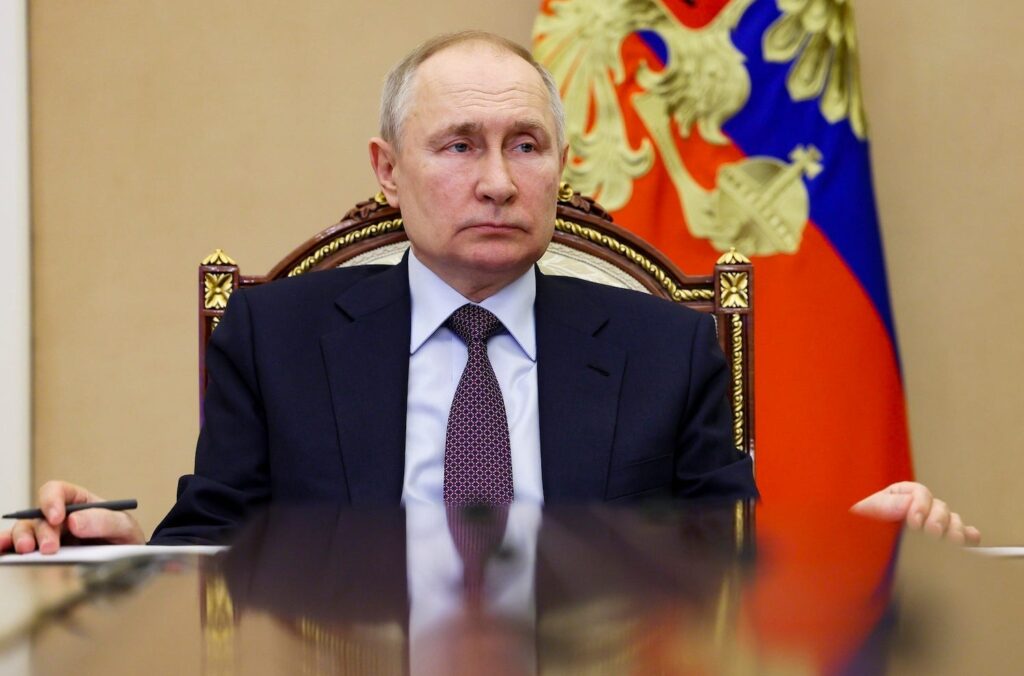- Russia's economy is hurting and a new wave of EU sanctions targeting its "war machine" are coming.
- Growing links to China, an unstable currency and "cherry-picked" data are key developments.
- Here are six key things to know about what's going on in Russia over the past week.
Russia's economy is reeling from the web of Western sanctions imposed on it after Vladimir Putin launched his war in Ukraine — and an official from the European Union recently said that Moscow will soon face a new wave of penalties coming from Europe.
The country's finances have taken a massive hit. Russia's private sector is shrinking, it has posted a $29 billion deficit in the first three months of 2023, and its main revenue sources – oil and gas exports – have plunged since a price cap was imposed by Western powers late last year.
Russia's growing economic ties to China, its unstable currency, and rising doubts about the accuracy of official government data coming out of Moscow are just some the key developments over the past week.
Here are 6 key things to know about what's going on in Russia as it grapples with the impact of sanctions on its economy:
1. It's not clear how Russia's economy is faring
The world's top forecasters can't seem to agree on whether Russia's economy is expanding or contracting. That's in part because of the questionable accuracy of the official data provided by Putin's government since the war began.
Seven predictions from the likes of JPMorgan, Morgan Stanley, Goldman Sachs, the IMF, Bank of Russia and more, all have different – and conflicting – estimates of Russia's real GDP in 2023.
2. "Cherry-picked" data
Economists around the world have cautioned against relying too much on economic forecasts and predictions that heavily depend on official data coming from Moscow's government. They said official stats are trying to paint a rosy picture of a resilient economy that's withstood the impact of sanctions – when in reality, the economy is in tatters.
"Since the Ukrainian invasion, our data has shown that the Kremlin's economic releases have become increasingly cherry-picked, selectively tossing out unfavorable metrics while releasing only those that are more favorable," two Yale researchers said.
Alexei Bayer, an independent economist, echoed this view and said the situation is much worse than it seems.
"Russian economic statistics are a collection of lies and distortions," Bayer said. "They are meant to convince people at home that their economy is chugging along despite the war, and people abroad that Western economic sanctions don't work and therefore should be rescinded."
3. There's a massive hole in the Kremlin's budget
Russia – the world's second-larges oil and gas producer — lost over $15 billion in oil and gas revenue during the first quarter of 2023, thanks to the price cap aimed at crippling Moscow's energy exports.
Russian President Vladimir Putin said he's optimistic that the situation will improve in the next few months given rising oil prices. Still, some experts said the country has lost its largest export markets, and these shrinking markets for Russia's resources will eventually push the Kremlin to cut spending on infrastructure and social programs.
4. Falling energy export revenue is shaking the ruble
The Russian ruble is coming off its worst week against the dollar since last year, cratering more than 5%. The falling currency comes as the country's energy export revenue dipped, and evidence mounts that Russia's recession in 2022 was way worse than initially thought.
5. Russia is becoming more economically linked to China
Russians purchased 41.9 billion rubles worth of China's yuan currency in March, more than tripling the 11.6 billion rubles they bought the month before, according to reports from the country's central bank.
While Putin rejected the idea that his country is becoming more economically dependent on China, and said it's a notion that comes from "jealous people," Chinese President Xi Jinping was able to secure sweeping trade agreements between the nations without offering up any concrete support in Ukraine.
"The main conduit of a deeper integration of China into Russia has been the Chinese yuan which is now perceived by the Russians as a much safer reserve currency to keep," Kpler analyst Viktor Katona told Insider.
6. New EU sanctions are looming
The embattled Russian economy is set to face a fresh round of painful sanctions.
Mairead McGuinness, a top EU official, confirmed on Thursday that Europe has plans to roll out its 11th package of penalties against Russia.
She didn't specify what the new sanctions would be aimed at. However, earlier rounds targeted Russia's oil and gas exports, key technologies, access to its currency reserves, and both individuals and companies.
